Since September 2018, the committee of TDs and senators formed to follow up on the Citizens’ Assembly on climate change has heard dozens of witnesses. These included Department of Agriculture, Teagasc and Bord Bia officials who shared information on existing production, greenhouse gas emissions, plans and possibilities to tackle this challenge.
The committee is now due to publish its report this month, ahead of a Government plan in March.
Many witnesses were farmer representatives and environmentalists placing agriculture high on their agenda – we asked them what they want from the committee.
IFA: Thomas Cooney
IFA would like to see more recognition of the climate actions taken by farmers.
These include over 200,000 Origin Green carbon assessments and participation in the voluntary Smart Farming programme.
Strong Government policy must ensure that this climate action starts to deliver a greater return for farmers.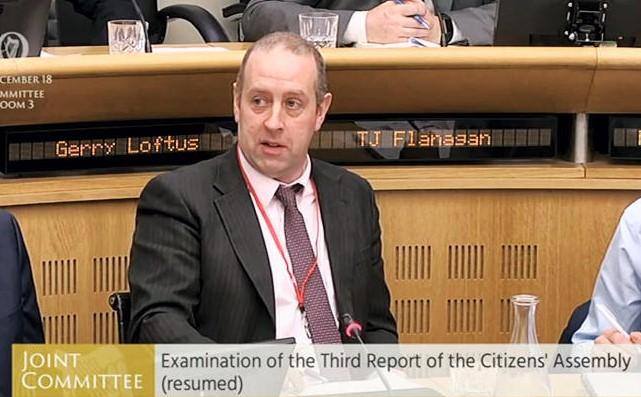
IFA environment chair Thomas Cooney before the Oirechtas committee on climate action.
IFA would like to see a commitment to increase the CAP budget, to meet additional environmental obligations.
IFA would also like to see a clear grid connection, planning and price support strategy to support the development of farm-based and community renewable energy projects.
This has the potential to reduce emissions by at least 2m tonnes of CO2.
ICMSA: Pat McCormack
Farmers are actively seeking measures to promote climate-efficient practices, but we will not allow Irish farming to become the national whipping boy for other sectors.
The imposition of carbon taxes on the agricultural sector will prove counter productive.
We have one of the most carbon-efficient agriculture sectors in the world and a carbon tax would simply shift production to less carbon-efficient regions, with an overall negative climate impact.
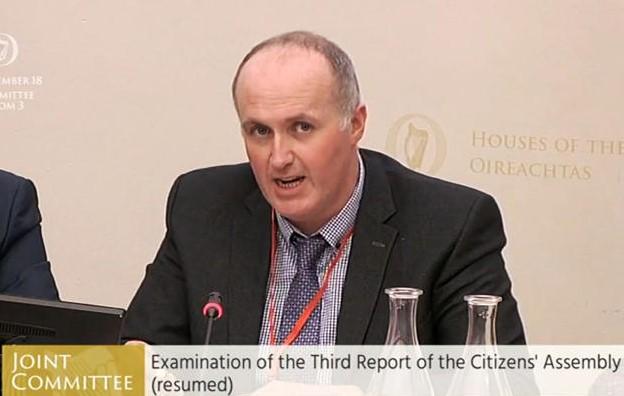
ICMSA president Pat McCormack before the Oirechtas committee on climate action.
Specific foods must be produced in the locations where they cause the least environmental stress. This means Ireland will continue to be a leading producer of dairy and beef, because science says that we’re best positioned to produce them.
Macra na Feirme: James Healy
It is important that the report reflects the reality that Irish agriculture is among the most carbon efficient in the world and recognises the progression that Irish farmers have made in this regard. However, we understand that farmers can and must do more.
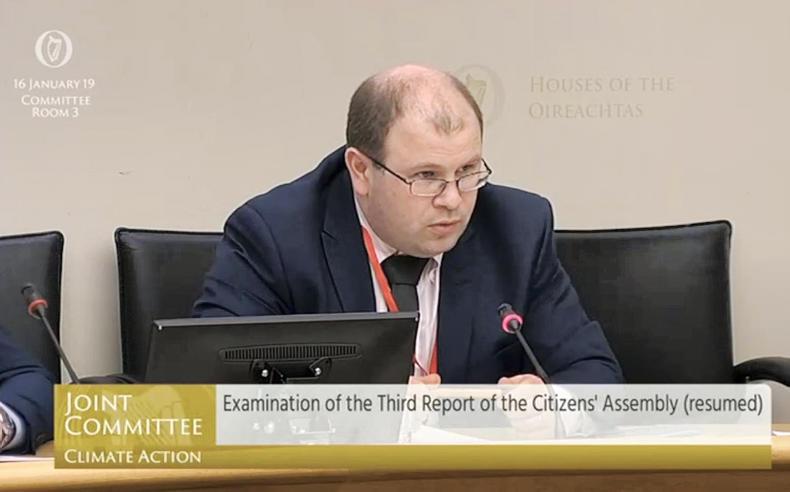
Macra president James Healy speaks before the Oireachtas committee on climate action.
This must begin with education. The knowledge and advice that is there for Irish farmers must be presented in a way that can be understood and implemented by farmers.
This combined with incentivising these actions, such as the spreading of lime and the wider use of nutrient management planning to improve soil indices, can provide significant carbon reductions.
INHFA: Gerry Loftus
The INHFA would like to see the report recommend that Food Wise 2025 be replaced, to move away from a massive dairy and conifer export focus (with a high carbon and environment footprint) towards a sustainable food system that feeds Ireland and delivers a healthy, clean economy.
We want every farm to have its carbon and environmental footprint measured annually.
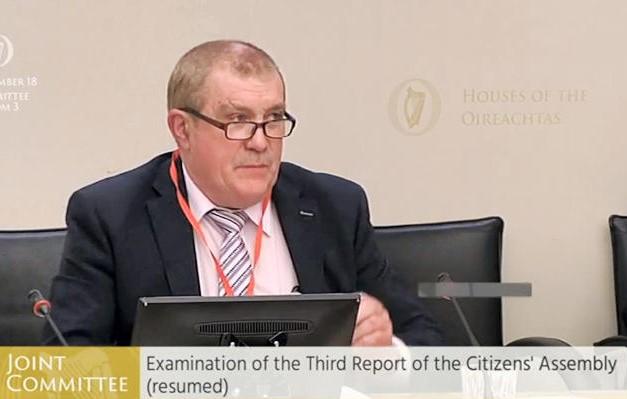
INHFA spokesperson Gerry Loftus before the Oirechtas committee on climate action.
This will allow the new CAP schemes to pay farmers to tackle emissions and pollutants, delivering results in meeting emissions, nitrates and water directive targets.
The taxpayer’s billions saved in fines will more than offset the few billion we might lose under the current industry-led approach.
ICOS: Michael Spellman
ICOS calls for a balanced document that recognises agriculture’s positive contribution to the climate change debate. In 2018, ICOS published 11 recommendations such as the greater use of protected urea, trailing
shoe technologies and milk recording, a lime promotion campaign, an agro forestry scheme for livestock farmers and incentives to support on-farm renewable energies, such as roof-mounted solar and AD.
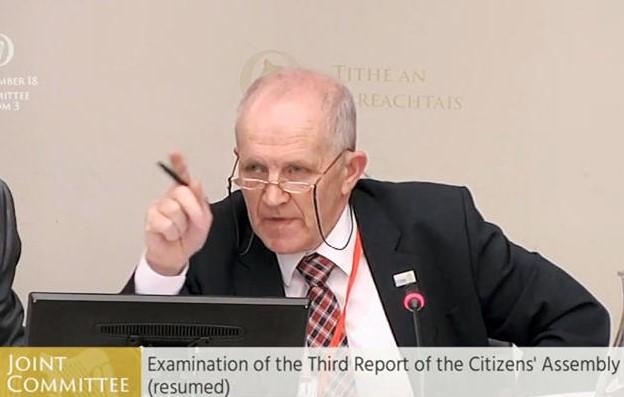
ICOS president Michael Spellman before the Oirechtas committee on climate action.
The Oireachtas needs to stand by farmers and the co-op movement.
They must continue to support farmers to develop the potential of their enterprises, secure better incomes and provide better futures by implementing the ICOS recommendations and the Teagasc mitigation proposals.
Environmental Pillar: Oisin Coughlan
While the rest of the economy has an absolute emissions reduction target of 80% to 95% by 2050, agriculture may only have to reduce its emissions by 50% to achieve its target of carbon neutrality.
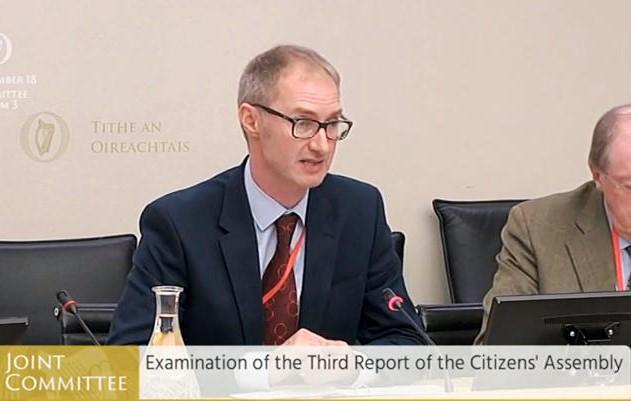
Oisin Coughlan of the Environmental Pillar coalition of NGOs before the Oirechtas committee on climate action.
Alongside a radical reorientation of CAP, the Committee should recommend a successor to Food Wise 2025 that moves away from “sustainable intensification” of ruminant production, and instead supports farmers in a just transition that includes on-farm diversification, micro-electricity generation, organic and high-value nature farming, wetland restoration, and appropriate expansion of tree cover, scrubland and hedgerows. This can support family farming at the centre of a vibrant, diverse and sustainable rural economy.
Read more
Listen: Government will set carbon target for agriculture – Minister Bruton
Solar farmers want 'certainty and fair price'
Since September 2018, the committee of TDs and senators formed to follow up on the Citizens’ Assembly on climate change has heard dozens of witnesses. These included Department of Agriculture, Teagasc and Bord Bia officials who shared information on existing production, greenhouse gas emissions, plans and possibilities to tackle this challenge.
The committee is now due to publish its report this month, ahead of a Government plan in March.
Many witnesses were farmer representatives and environmentalists placing agriculture high on their agenda – we asked them what they want from the committee.
IFA: Thomas Cooney
IFA would like to see more recognition of the climate actions taken by farmers.
These include over 200,000 Origin Green carbon assessments and participation in the voluntary Smart Farming programme.
Strong Government policy must ensure that this climate action starts to deliver a greater return for farmers.
IFA environment chair Thomas Cooney before the Oirechtas committee on climate action.
IFA would like to see a commitment to increase the CAP budget, to meet additional environmental obligations.
IFA would also like to see a clear grid connection, planning and price support strategy to support the development of farm-based and community renewable energy projects.
This has the potential to reduce emissions by at least 2m tonnes of CO2.
ICMSA: Pat McCormack
Farmers are actively seeking measures to promote climate-efficient practices, but we will not allow Irish farming to become the national whipping boy for other sectors.
The imposition of carbon taxes on the agricultural sector will prove counter productive.
We have one of the most carbon-efficient agriculture sectors in the world and a carbon tax would simply shift production to less carbon-efficient regions, with an overall negative climate impact.

ICMSA president Pat McCormack before the Oirechtas committee on climate action.
Specific foods must be produced in the locations where they cause the least environmental stress. This means Ireland will continue to be a leading producer of dairy and beef, because science says that we’re best positioned to produce them.
Macra na Feirme: James Healy
It is important that the report reflects the reality that Irish agriculture is among the most carbon efficient in the world and recognises the progression that Irish farmers have made in this regard. However, we understand that farmers can and must do more.

Macra president James Healy speaks before the Oireachtas committee on climate action.
This must begin with education. The knowledge and advice that is there for Irish farmers must be presented in a way that can be understood and implemented by farmers.
This combined with incentivising these actions, such as the spreading of lime and the wider use of nutrient management planning to improve soil indices, can provide significant carbon reductions.
INHFA: Gerry Loftus
The INHFA would like to see the report recommend that Food Wise 2025 be replaced, to move away from a massive dairy and conifer export focus (with a high carbon and environment footprint) towards a sustainable food system that feeds Ireland and delivers a healthy, clean economy.
We want every farm to have its carbon and environmental footprint measured annually.

INHFA spokesperson Gerry Loftus before the Oirechtas committee on climate action.
This will allow the new CAP schemes to pay farmers to tackle emissions and pollutants, delivering results in meeting emissions, nitrates and water directive targets.
The taxpayer’s billions saved in fines will more than offset the few billion we might lose under the current industry-led approach.
ICOS: Michael Spellman
ICOS calls for a balanced document that recognises agriculture’s positive contribution to the climate change debate. In 2018, ICOS published 11 recommendations such as the greater use of protected urea, trailing
shoe technologies and milk recording, a lime promotion campaign, an agro forestry scheme for livestock farmers and incentives to support on-farm renewable energies, such as roof-mounted solar and AD.

ICOS president Michael Spellman before the Oirechtas committee on climate action.
The Oireachtas needs to stand by farmers and the co-op movement.
They must continue to support farmers to develop the potential of their enterprises, secure better incomes and provide better futures by implementing the ICOS recommendations and the Teagasc mitigation proposals.
Environmental Pillar: Oisin Coughlan
While the rest of the economy has an absolute emissions reduction target of 80% to 95% by 2050, agriculture may only have to reduce its emissions by 50% to achieve its target of carbon neutrality.

Oisin Coughlan of the Environmental Pillar coalition of NGOs before the Oirechtas committee on climate action.
Alongside a radical reorientation of CAP, the Committee should recommend a successor to Food Wise 2025 that moves away from “sustainable intensification” of ruminant production, and instead supports farmers in a just transition that includes on-farm diversification, micro-electricity generation, organic and high-value nature farming, wetland restoration, and appropriate expansion of tree cover, scrubland and hedgerows. This can support family farming at the centre of a vibrant, diverse and sustainable rural economy.
Read more
Listen: Government will set carbon target for agriculture – Minister Bruton
Solar farmers want 'certainty and fair price'



















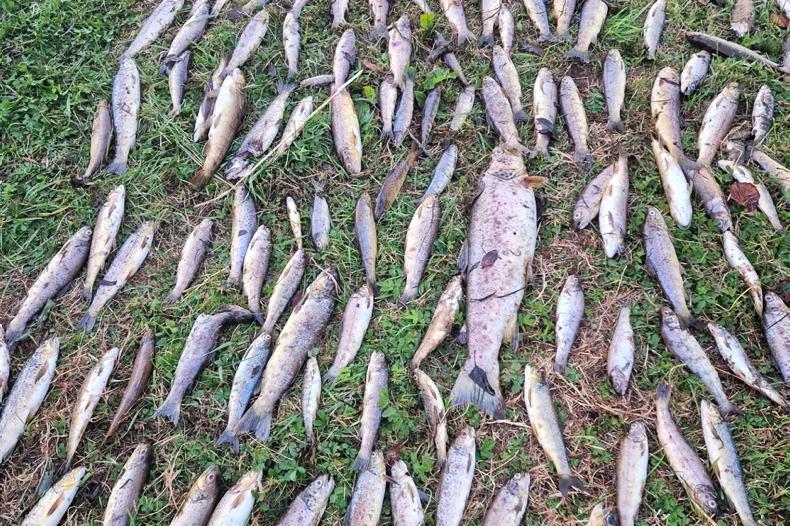
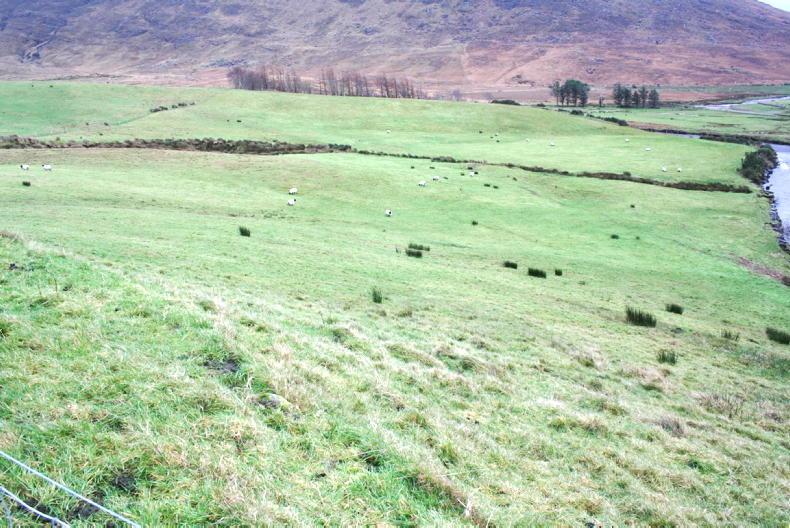
SHARING OPTIONS